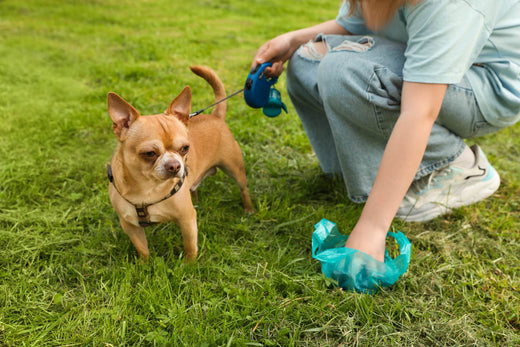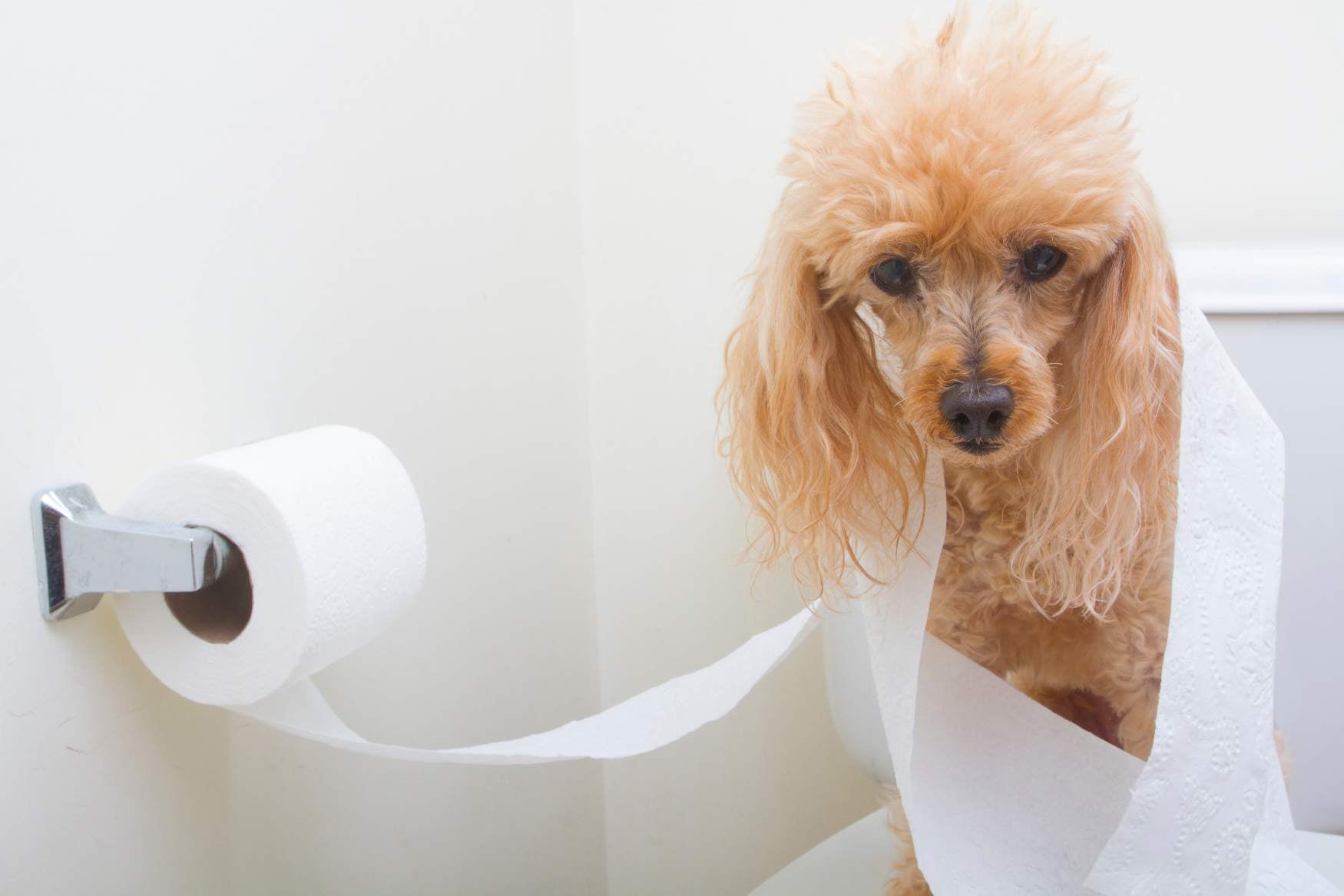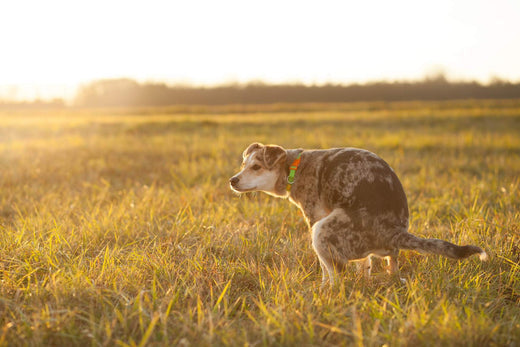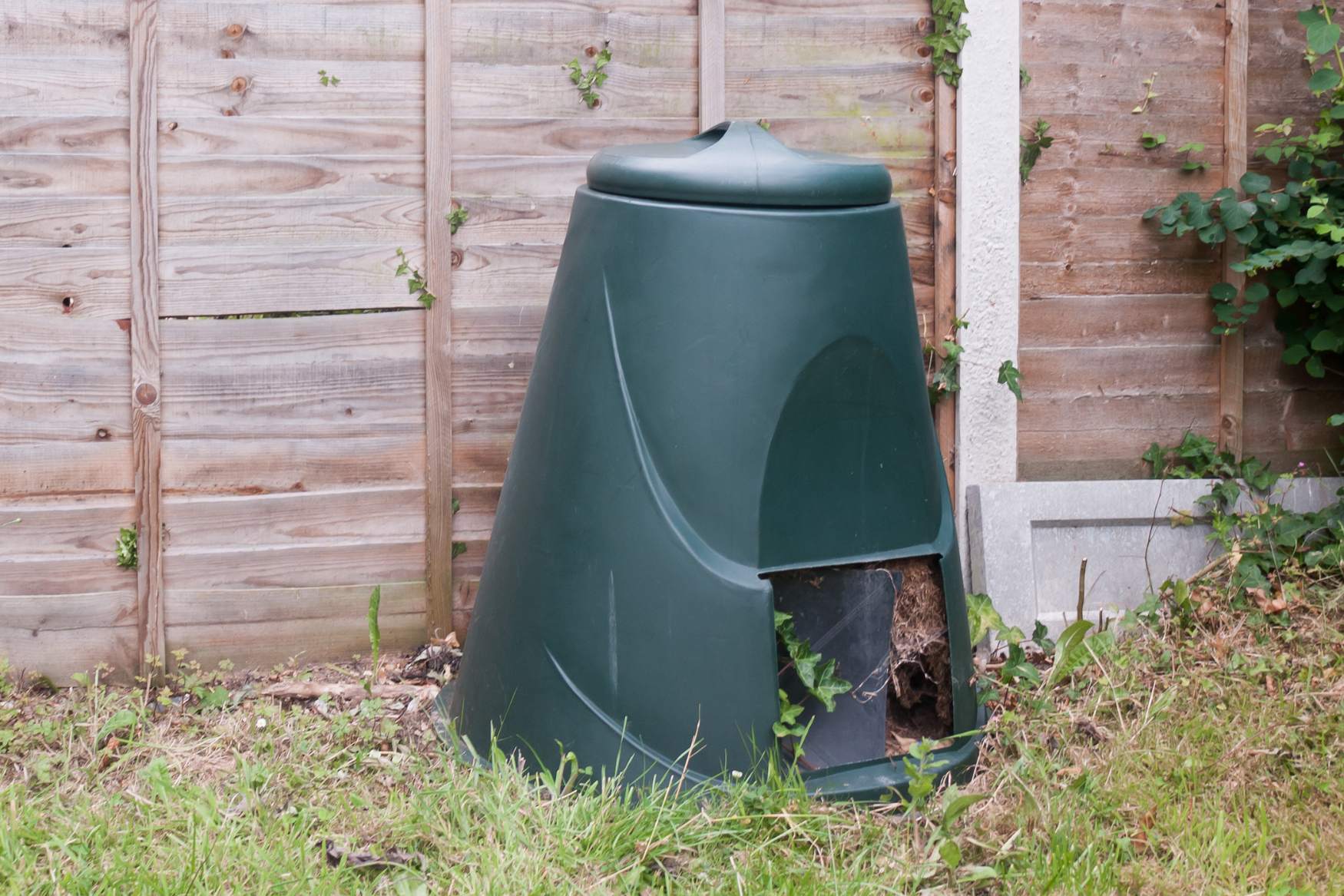There is an overwhelming amount of greenwashing and confusion surrounding 'eco-friendly' poo bags.
It's often claimed that compostable 'cornstarch' poo bags are the best option on the market at present (as of 2025).
One of the reasons, besides biodegradability, is that they are "plant-based".
However, this is more myth than reality.
What are they actually made of?
All compostable and biodegradable poo bags (as of 2025) consist of a material called 'PBAT' or Polybutylene Adipate Terephthalate. What isn’t often revealed is that PBAT is a biodegradable plastic polymer made from fossil-fuels - not plants.
This means compostable and biodegradable poo bags are made from the same thing that conventional plastic is made of - crude oil.
PBAT makes up 50-80% of compostable 'cornstarch' poo bags. Therefore, it is misleading to describe these poo bags as plant-based, when the main ingredient is derived from fossil fuels.
We have communicated with the manufacturers producing 'cornstarch' poo bags for some of the biggest brands around and have not found one that offers a 'plant-based' poo bag with less than 50% PBAT.
Why include PBAT?
All poo bags include PBAT for strength and structure.
If they were 100% plant-based they would turn to mush very quickly when wet, lack strength and tear easily (some qualities you really don't want in a poo bag!)
Unsurprisingly, strength is one of the top qualities pet owners state they look for when shopping for poo bags.
Should 100% plant-based poo bags be something we actually aim for?
While plant-based plastic may have its place in a few specific scenarios (e.g. food waste), it raises numerous concerns.
For example, the production of plant-based plastic is hugely resource-intensive and requires significant amounts of water, land, energy (using fossil fuels), fertilisers, pesticides and GMOs.
Some life cycle analyses (the most comprehensive measure of the environmental impact of materials) have shown that it's the same, if not worse, than conventional plastic when it comes to contributions to climate change, air pollution and ecotoxicity.
Another concern is that plant-based plastic currently relies on food crops, such as corn and sugarcane.
Therefore it directly competes with human food production, potentially driving up costs of food.
In fact, The EASAC Report of March 2020 says that “replacing PE (a type of plastic) with a bio-PE (plant-based plastic) would require almost all (93.5%) of global wheat production”.
This raises serious ethical questions of growing food to make plastic instead of feeding millions of hungry people.
While plastic can be made from non-food plant resources (e.g. algae) this is expensive and isn't widespread yet.
Some experts even believe that plant-based plastic has no role to play in solving the plastic crisis and should instead be focus on reducing and reusing plastic.
The bottom line
- 'Plant-based' poo bags consist of a majority fossil-fuel derived plastic polymer, PBAT.
- Even using plants as a raw material to make plastic is not necessarily 'sustainable'.
- 'Plant-based' is an inaccurate description of these compostable poo bags and we could go as far as saying plant-based poo bags do not exist.
If you're surprised by the above - you're not alone, we were too!
So what's the answer?
Considering the significant environmental footprint of manufacturing compostable 'cornstarch' poo bags and the majority are disposed of in general waste where they are not meant to go (compostable bags must be disposed of in a compost environment)...
Experts agree that the best option as of 2025 is to make poo bags from existing waste, i.e. recycled plastic and bio-renewable waste.
This is why we created ReSEAcled Poo Bags.
Made out of repurposed waste, these award-winning poo bags directly reduce your plastic and environmental footprint by also actively funding ocean-bound plastic removal.
References:
Life cycle assessment of bio-based and fossil-based plastic
Composting of plastic - fact or fiction?













